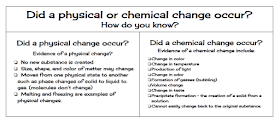
I'm thinking about that as I get ready for learning walks when a host of administrators come to your classroom to watch you and your students learn. I'm not a big fan of this process for many reasons, reasons outlined, in part, in the book Intentional Interruption, however it is a reality of my teaching/learning existence.
Our system leadership chose the goal of FOSS Fever to match our primary science curriculum, FOSS, as our focus for these rounds and for our science work this year. They will focus on the FOSS pedagogical practices when they come to our classrooms.

As I think of the administrators' focus and the work I am doing in science, I want to match my research and learning environment to the expectations as well as my research and experience. What does that mean?
To make the way to teach more science, I created a simple pattern to follow. This pattern demonstrated to the right does match the preparation for the FOSS pedagogical practices.
How else will I set up the learning experiences and classroom to support these pedagogical practices more.
Active Investigations
The pattern to the right prepares the stage for active investigations. The more we can pattern the routine aspects of science, the more time we have for the richer, deeper scientific exploration.
Students have been assigned balanced science groups--groups that work well together. They have "lab" spaces which is their table area. There is a supply table where they collect and return their supplies. The active explorations are based on the curriculum materials and the state science standards. There is also an attempt to make these investigations interdisciplinary and to relate those investigations to students' community, environment, and culture.
 |
| The more the students see the value of their notes, the better their notes become. |
 |
| Active exploration as students compare a typical egg and an egg that's been immersed in vinegar. |
Science Literacy
We have a large number of resources to support students' science literacy including the FOSS books, videos, and many, many other books and videos. We host most of these materials on a website that is readily available to all learning/teaching community members including students, families, colleagues, administrators, and community members.
Assessment
We have a large array of of formal and informal assessment that we use to assess students' science learning. The FOSS program offers assessments. We have past MCAS tests that provide another assessment. We also use multiple less formal assessments such as observation, educator/student reflections/conversation, and photography. To assess the entire unit of study and standards, I combined the FOSS questions and MA standards into a self-correcting Google Form test that students can take over and over again to assess their knowledge and to further learn. Also by collecting images on our team Twitter page, that provides a good point of reflection and assessment. I am so busy during students' investigations, that it's difficult to step back to assess, but I can look back on images and short videos later and assess whose actively involved, what they are doing, and how they are reacting. I find that to be a very helpful assessment piece.
Extensions
Positive extensions which are helping our team teaching the science pedagogical practices better include a local rivers-study grant with the local Drumlin Farm, an Audubon Organization that provides us with the guidance of a naturalist coach. We also include a visiting scientist who comes to demonstrate and lead scientific exploration. The Town engineer has volunteered to come in to talk about local engineering projects and water resources/needs. And we will soon visit a local popular site, Gillette Stadium, to jump start our many STEAM projects to come. And at the end of the year all of this science learning and exploration comes together in our yearly Global Cardboard Challenge. Mystery Science is another possible extension that brings an engaging, modern lens to the teaching and Flocabulary is one culturally proficient resource that helps students master the main grade-level science vocabulary and concepts.
The stage is set for the science teaching ahead and the rounds--now it's time to plan the specific learning experiences and update the room for this learning and teaching.

